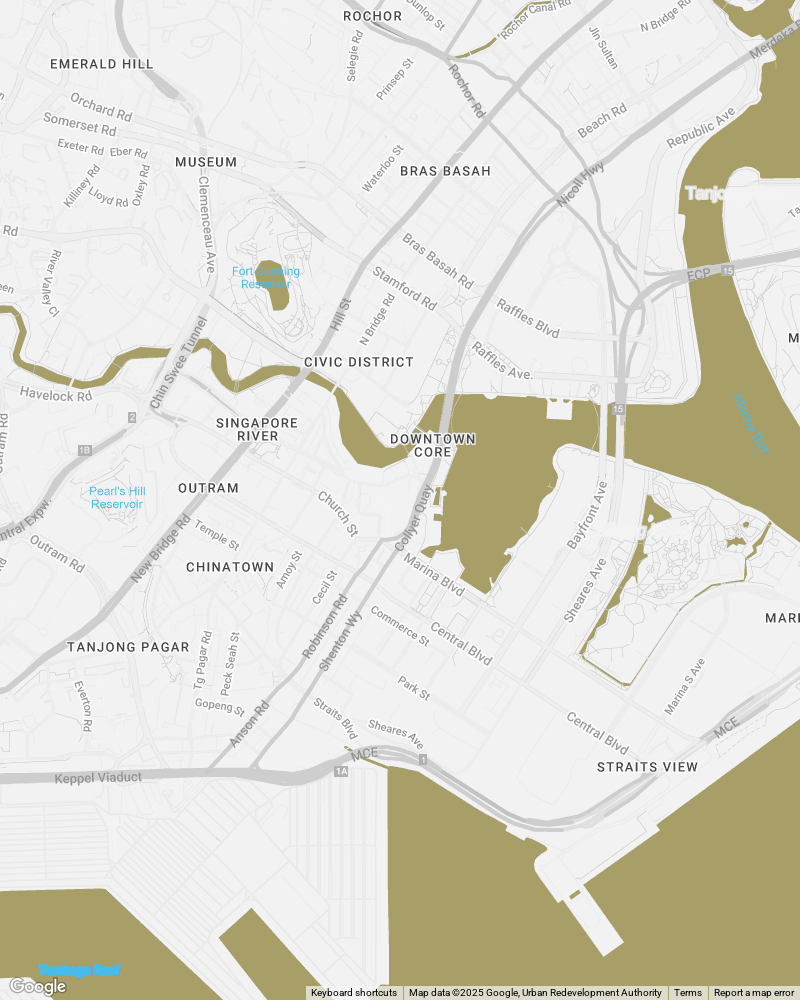TL;DR
Singaporean executives waste $15,000-$ 30,000 on generic coaching that ignores local business realities. Most executive coaching programs in Singapore use Western frameworks that often fail in our high-pressure, multicultural, and regional headquarters environment.
What works: Evidence-based integration of mindfulness (for mental clarity under pressure) + strategic frameworks (for APAC complexity) + visual processing (for complex decisions). Look for coaches with Singapore business experience who can measure results, not just facilitate conversations.
Key insight: Your strategic thinking depends on your mental state. When overwhelmed with managing across time zones and cultures, even experienced leaders make poor decisions. The best executive coaches in Singapore address both simultaneously.
Bottom line: Choose coaching as intense and strategic as Singapore's business environment. Take our Executive Clarity Assessment to identify where unclear thinking limits your regional leadership effectiveness.
Here's an uncomfortable truth: most executive coaching in Singapore treats complex business leaders as if they need life advice rather than strategic thinking enhancement.
I've watched senior leaders across Marina Bay, Raffles Place, and Shenton Way invest significant resources in executive coaching programs in Singapore only to return to work with the same decision paralysis, the same overwhelming complexity, and the same inability to cut through Singapore's relentless business pace.
The problem isn't the leaders. It's the coaching approach.
Key Takeaway: Traditional coaching fails to meet the needs of Singapore executives because it overlooks the local business intensity, cultural complexity, and the unique pressures of managing regional operations from Asia's most competitive financial hub.

The Singapore Executive Reality: Why Generic Coaching Fails
Singapore's business environment creates pressures unlike anywhere else in APAC:
Market Intensity Factors:
- Extreme time constraints managing regional operations across 6+ time zones
- Cultural complexity leading diverse teams spanning 10+ nationalities
- High-stakes decision-making where mistakes impact millions and careers
- Regulatory complexity navigating MAS, ACRA, and multi-jurisdiction compliance
- Competition intensity fighting for regional headquarters status against Hong Kong, Tokyo
Geographic Challenges:
- CBD pressure with Singapore's highest commercial rents demanding performance
- Government expectations of maintaining Singapore's efficiency standards
- Regional responsibility for managing teams from Jakarta to Tokyo
- Supply chain complexity coordinating across ASEAN+3 markets
Yet most executive coaches in Singapore use generic frameworks designed for Western single-market contexts.
As I explored in Rethinking Leadership in Singapore's High-Performance Culture, our intensity-driven culture often mistakes activity for effectiveness.
Why Traditional Executive Coaching Singapore Programs Fall Short
Problem 1: Separation of Strategy and Mental State
Traditional leadership coaching in Singapore treats strategic thinking and mental clarity as separate issues. But your ability to think strategically depends entirely on your mental state. When you're overwhelmed managing operations across APAC or running on autopilot between board meetings, you make poor decisions regardless of your experience level.
Problem 2: Talk-Heavy, Action-Light Methods
Most coaching sessions are expensive conversations. You discuss challenges, explore feelings, and get some advice. But when you're back in the Marina Bay boardroom making million-dollar decisions with government stakeholders watching, talking doesn't help you think clearer or decide faster.
Problem 3: Generic Frameworks for Singapore's Unique Context
Cookie-cutter leadership models ignore Singapore's reality:
- Managing MNC regional operations
- Balancing government relations with commercial objectives
- Leading across Singaporean, Malaysian, Indonesian, Thai, and Vietnamese cultures simultaneously
- Operating under Singapore's zero-tolerance efficiency expectations
The challenge many face is what I addressed in Managing Up Is Nt Leadership - focusing energy in the wrong direction entirely.
What Actually Works: The Evidence-Based Singapore Approach
Effective executive coaching in Singapore requires three elements working together:
1. Mindfulness for Strategic Performance (Not Relaxation)
This isn't meditation retreat mindfulness. It's developing the mental agility to:
- Stay present during high-pressure government liaison meetings
- Recognize your decision patterns when managing crisis across multiple markets
- Access your best thinking during board presentations
- Maintain clarity when balancing Singapore headquarters demands with regional realities
Singapore Application: 5-minute clarity practices between back-to-back meetings spanning Jakarta to Tokyo, not hour-long meditation sessions.
2. Strategic Frameworks for APAC Regional Leadership
Singapore-Specific Strategic Tools:
- Cross-cultural decision matrices for diverse team management
- Regulatory impact assessment for multi-jurisdiction operations
- Stakeholder influence mapping, including government relations
- Crisis leadership protocols for supply chain disruptions
3. Visual Processing for Complex Regional Decisions
According to peer-reviewed research on visual reflection techniques in coaching contexts, visual methods can enhance self-awareness and improve leaders' ability to process complex information. When you're dealing with multi-stakeholder decisions across Singapore's government-private sector interface or intricate regional strategic choices, visual processing helps reveal patterns that purely verbal analysis misses.
Research Evidence: Studies published in psychology and leadership journals have documented that photography-based reflection techniques and visual exercises can cultivate mindful self-awareness and enhance decision-making clarity for professionals in coaching contexts.
Practical Application:
- Stakeholder influence mapping for government-private partnerships
- Visual decision trees for regional market entry strategies
- Relationship mapping for cross-cultural team dynamics across APAC
- Risk visualization for board presentations to Singapore headquarters
Learn more about how these elements integrate on our Methodology page.
How to Choose the Best Executive Coach Singapore: 7-Step Guide
Step 1: Verify Singapore Business Understanding
Essential Questions:
- How many Singapore-based executives have you coached?
- What's your experience with regional headquarters challenges?
- Do you understand MAS/ACRA regulatory pressures?
- Can you provide references from similar industry leaders?
Step 2: Assess Methodology Beyond Conversation
Red Flags:
- Only offers talk-based sessions
- No integration of strategic tools with mindset work
- Generic personality assessments as primary approach
Green Flags:
- Evidence-based visual processing techniques
- Singapore-specific strategic frameworks
- Integration of mindfulness with business performance
Step 3: Evaluate Regional Complexity Experience
Critical Capabilities:
- Cross-cultural team leadership across APAC
- Multi-jurisdiction regulatory navigation
- Government-private sector relationship management
- Crisis leadership for supply chain/market disruptions
Step 4: Demand Outcome Measurement
Must-Have Elements:
- Baseline assessment process
- Progress tracking throughout the engagement
- Measurable improvement metrics
- Clear definition of coaching success
Step 5: Test Singapore Context Knowledge
Sample Scenario: "I'm managing teams across 8 APAC countries from Singapore headquarters, reporting to a global board with local government stakeholders. Three major decisions are due this month, and I'm second-guessing myself. How would you help?"
Quality Response Indicators:
- Acknowledges Singapore's unique pressures
- Integrates strategy and mental clarity
- Specific methodology explanation
- Clear, actionable next steps
Step 6: Verify Professional Credentials
Preferred Qualifications:
- ICF certification (ACC, PCC, or MCC)
- Singapore business experience (minimum 3 years)
- Regional leadership background
- Evidence-based methodology training
Step 7: Assess Cultural and Business Fit
Final Evaluation:
- Do they understand your specific industry context?
- Can they work with your schedule and intensity level?
- Do their values align with Singapore's performance culture?
- Are they equipped for virtual and in-person hybrid delivery?
Pricing reflects Singapore's market positioning and the specialized nature of regional executive leadership development.
ROI Measurement Framework
Quantifiable Improvements:
- Decision Speed: Faster resolution of complex strategic choices
- Team Performance: Improved regional team engagement and delivery
- Stakeholder Management: Enhanced government and board relationships
- Crisis Leadership: Better performance during market disruptions
- Career Acceleration: Promotion of readiness and leadership recognition
Typical Outcomes:
- Improved confidence in high-stakes decision-making
- Enhanced ability to manage across cultural complexities
- Better strategic thinking under pressure
- Reduced stress while maintaining performance
- More substantial leadership presence in challenging situations
Singapore Executive Coaching: Key Takeaways
What Works in Singapore's Market
- Integration approach - mindfulness + strategy + visual processing together
- Regional complexity focus - designed for APAC leadership challenges
- Performance sustainability - maintaining excellence without burnout
- Cultural competency - managing diverse teams effectively
- Government relations - understanding Singapore's business environment
What Doesn't Work
- Generic Western frameworks - ignore Singapore's unique pressures
- Talk-only methods - insufficient for complex strategic decisions
- Work-life balance focus - unrealistic in Singapore's competitive environment
- One-size-fits-all approaches - miss regional and cultural complexities
- Long-term only programs - executives need immediately applicable tools
Questions Every Singapore Executive Should Ask
- How will this improve my decision-making under pressure?
- Does this address regional complexity and cultural management?
- What specific tools will I have for immediate application?
- How do you measure success beyond conversations?
- Do you understand the dynamics between Singapore's government and businesses?
Red Flags: Executive Coaches to Avoid in Singapore
Major Warning Signs
Promises Unrealistic Outcomes:
- "Achieve work-life balance" (impossible in Singapore's intensity)
- "Eliminate stress completely" (unrealistic for regional leadership)
- "Quick fixes" for complex leadership challenges
Lacks Singapore Context:
- No understanding of MNC regional headquarters pressures
- Unfamiliar with Singapore's government-business interface
- Generic advice that ignores APAC cultural complexity
Methodology Red Flags:
- Only offers conversation-based sessions
- No integration of strategic tools with personal Development
- Cannot explain how visual/mindfulness techniques apply to business
Credibility Issues:
- Cannot provide Singapore-based executive references
- Vague about methodology or outcomes
- No straightforward process for measuring progress
Success in Singapore's Executive Environment
The best executive coaches in Singapore understand that our market demands coaching as intense and strategic as the business challenges you face. If your coaching doesn't make you a clearer thinker and faster decision-maker while managing regional complexity, you're wasting resources you can't afford to lose.
The most effective executive coaching Singapore programs don't just develop leadership skills—they build the specific capabilities needed to thrive in Singapore's unique position as APAC's business hub.
Our Executive Clarity Programs are designed specifically for Singapore's demanding business environment, integrating evidence-based methodologies with practical tools for immediate application.
Ready to cut through the complexity? Our Executive Clarity Assessment identifies where unclear thinking might be limiting your effectiveness in Singapore's competitive market.


.svg)























